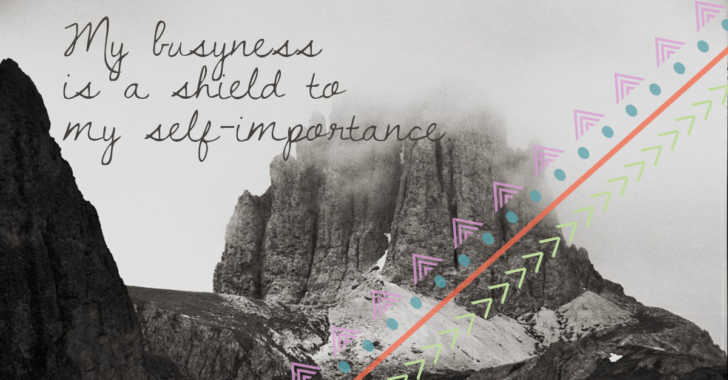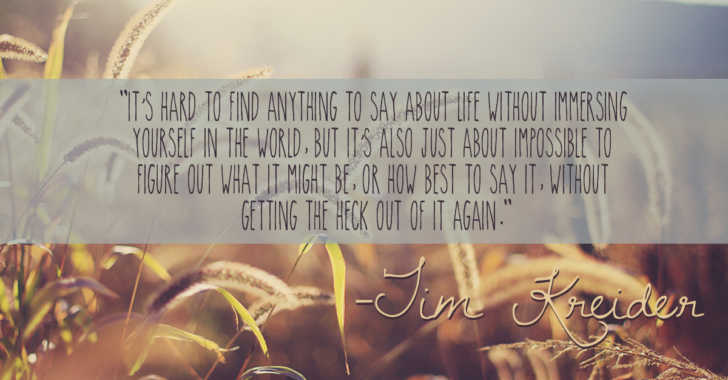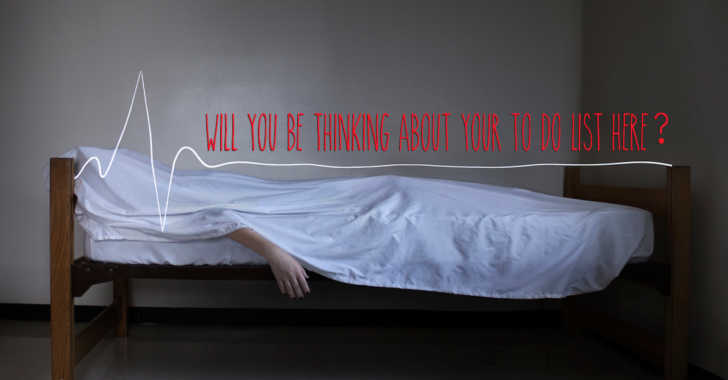The Lasting Effect Of The “Too Busy” Culture
The to-do list isn’t the point; people are the point.
We all know the studies that link stress to exhaustion, insomnia, heartburn, heart attack, IBS… The list goes on and on. But here we are, playing Tetris with the Google Calendar ap in an attempt to get the most out of every 24 hours because the more you do, the better you are… right? If you’re anything like me, I bet you’re multi-tasking right now, thinking of what to make for dinner, (tacos?) In fact, according to a recent study by the American Psychological Association, the majority of Americans recognize their level of stress exceeds levels necessary to maintain a healthy life. Yet the number one reason why they don’t address the issue? Being too busy.

The Problem Of Busyness.
We see where this is going; busyness = stress = health issues = obviously bad for everyone involved. Even our leisure time has become hectic and overstimulating with the mindset of, “work hard, play hard.” Busyness is an addiction, a need to feel fulfilled, and it never really satisfies. Most of the time we set the pace of urgency in order to create urgency in others, hoping to move things along to some illusive end. However, instead of getting things done quicker, the result usually ends in anxiety, resentment, and bitterness on our part.
Why do we create this stress? I think the issue is two fold.
- We have a metric of worth based on productivity. It’s the first question asked at parties, “What do you do?” And more often than not, when asked how we are, the answer is, “Busy!” As if proud that you are a contributing member of society, raising other, busy, and contributing members of society.
- We don’t know who we are without our busyness, and we’re afraid to find out. Beyond your fashion sense, and taste in books and movies, who are you, really? What is left of you once your job and your stuff is taken away? It’s an uncomfortable question, and so to avoid showing this gaping hole in our existence, we fill in the space with errands, classes, house repairs, and Netflix.

This busyness has seeped into every aspect of our lives, from work and relaxation, to relationships and conversations. We are all in a hurry to get to the next thing, to fill in the silence. Facebook has taught us to not so much communicate, but instead throw as many words containing as much rhetoric as possible in order to be the last one standing. And for what? How did we even get to this place of disillusionment?
The Crowded Road To Dissatisfaction.
Technology definitely has a part to play, and there is something to be said about being available via smart phone for constant updates, invites, emails, work-related calls, etc. The line between work life and home life is all but gone, and with it, the line between convenient and intrusive. The internet isn’t the only thing to blame here, however.
We all grew up in a society that values hard work and ingenuity. We love pulling ourselves up by our boot straps. The idea of upward mobility is hardwired in our western culture. My grandparents wanted a better life for my parents, my parents pushed for a better life for me, and I just have a cat, so my family’s legacy sort of rests on my shoulders for the time being. Somewhere along the way though, we equated the idea of “better” with importance. Important people are needed; their time is valuable. So we must be important if our time is stretched thin, and we must be needed if we pack and plan every day accordingly. Fake it till you make it, right?
What’s the solution?
In preparation for this assignment, I read a few articles that contributed ideas on solving this
So that’s where I propose we begin; with reframing the way we view our busyness. It’s not a badge of honor, or a measure of our worth. It’s not our savior, our filler, or a defense. Busyness is simply a side effect of living in America in the 21st century. Don’t give your busyness any more power over your life than necessary.

What’s the point of it all, anyway? Do you only work for a paycheck, or cart around your kids to soccer and dance because they asked you to? Are date nights simply a requirement to be filled? I hope the answer to those questions is a resounding, NO! Your job is a means to provide security for your family, because you love them. You chauffeur your kids to extra-curricular activities because you want good things for them, and you go on date nights to show your spouse how important they are to you. Are you sensing a theme yet? At the end of your life, you won’t be worried about how many things you crossed off of your “to-do” list, (hopefully) because that’s not the point. People are the point. Relationships, and love, and making a connection. It is through those you leave behind that your true impact is made.
SKM: below-content placeholderWhizzco for FHB

